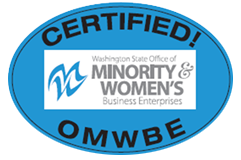 A reference check doesn’t just verify what you already know about a potential hire, it’s a powerful way to request an outside opinion. It can help to uncover inconsistencies in the information a candidate has presented, give valuable insights into their real-world performance, and illuminate strengths the prospective employee is unaware of or didn’t think to highlight.
A reference check doesn’t just verify what you already know about a potential hire, it’s a powerful way to request an outside opinion. It can help to uncover inconsistencies in the information a candidate has presented, give valuable insights into their real-world performance, and illuminate strengths the prospective employee is unaware of or didn’t think to highlight.
Even when a candidate seems to be a perfect fit, a reference check is a vital final step before a job offer is made.
The whys of reference checks are clear. But how do you make a reference check call and what do you ask to elicit the most useful info? Perhaps more importantly, what do you not ask during a reference check?
Most topics that are off limits during a job interview (questions regarding legally protected classes such as age, race, gender) are also off the table during a reference check. And keep in mind that some companies you may call for the reference check have a “just the facts” policy for answering questions about former employees: they will only confirm employment, job title, and the date range of employment.
For those who do a deeper dive, the following questions can be helpful:
- What is your position and in what capacity did you work with the candidate?
Often when making a reference call, the person you’ll be contacting was the candidate’s direct supervisor. In other instances, such as when the company has a fairly flat management structure, or when employees don’t have a lot of interaction with supervisors, their chosen reference will be a coworker. It’s important to know who you’re speaking with and why.
- How well did they get along with others and what was it like to work with them?
This is a vital piece of info that cannot be gleaned from a few brief interactions with the potential hire. A candidate will not tell you that they can be difficult to work with and, conversely, some people are unaware of what a truly great team player they are.
- What was the candidate’s area of focus and main set of responsibilities?
This is a good opportunity to see if the candidate’s résumé lines up with the former employer’s description. It can also provide insights based on what the former employer finds to be the most vital of the candidate’s tasks, and how their role worked within the bigger picture.
- What strengths and skills did they bring to their job?
This is typically the most insightful part of a reference check, and giving an employer the opportunity to speak to the ways their employee met or surpassed expectations is useful in helping you hire someone who’s willing to go above and beyond.
- What would you identify as areas for improvement or additional training?
No prospective employee is perfect—and no one knows that better than the people who work with them directly. You’ve no doubt asked the candidate a similar question during the interview process, and asking the same of people who have worked with them directly will give you insight into what you may have to plan ahead for.
- How does the candidate handle feedback?
Being able to take in and grow from feedback is integral to the growth of both employer and employee. Some folks crave feedback, others find it more difficult to accept yet see it as an opportunity to improve. Others can be feedback-averse, an important red flag when considering a prospective hire.
- Tell me something about them they wouldn’t think to include on a résumé.
If we were the best judges of ourselves, reference checks would be a simple check mark rather than an interview of their own. Sometimes we bring strengths, skills, interests or even personality quirks to the table that we’re not even aware of. Insights brought up here may make a tough hiring decision that much easier.
- Would you rehire them? Why or why not?
This question is identified by recruiters and hiring managers as one of the most crucial. An employer who is quick to say they’d rehire is speaking about an employee they see enough value in to want to reinvest in them. And one who hesitates or says they would decline to rehire is offering up a clear warning sign. It’s important to understand their reasoning in either case.
Looking for more insights? Seattle Financial provides reference checks as a part of our accountant & office staff recruiting service. For construction and real estate recruiting, please contact NW Recruiting Partners.



